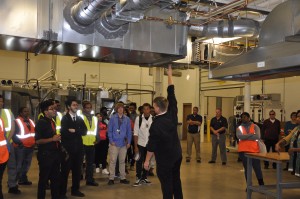Students and adults thinking about going to college to earn a bachelor’s degree should give strong consideration to apprenticeships, vocational and other technical educations says a January Forbes.com article.
Written by Nicholas Wyman, the article looks at why men and women should consider joining an apprenticeship program instead of going to college.
Roughly 13 million Americans, many with college degrees, are unemployed and countless more are either underemployed or have given up trying to find a job.
The unemployment rate for college graduates grew by 1.5 percent in 2014, while the unemployment rate for those in their 20s, with at least a bachelor’s degree, climbed to 12.4 percent.
The high unemployment rate leaves many college graduates with a difficult time finding a way to pay their student debt, which averages out to $30,000 per graduate. Nationwide, the total amount of student loan debt is $1.2 trillion.
Paying down their debt may be harder for some graduates as unemployment rates and student debt amounts are expected to rise as future demand for jobs shifts.
A report from Georgetown University predicts that nearly two-thirds of available jobs in 2020 will not require at least bachelor’s degree. Instead, roughly half of those jobs will require vocational training such as an apprenticeship or an associate’s degree.
The rise in apprenticeship and vocational training jobs corresponds to the retirement of baby boomers. As these individuals leave the workforce, the construction and manufacturing industries continue to seek individuals to fill their positions.

Wyman writes “the economic vitality of our companies and our communities relies on a largepopulation of vocationally skilled people; proficient automotive technicians and engineers, welders, electricians, plumbers chefs, laboratory technicians, health workers, and much more.”
Positions with construction trade unions affiliated with the Cleveland Building Trades are available to individuals with experience in the construction industry or to those willing to work as apprentices and earn while they learn.
At no cost to taxpayers, our member unions, through their Joint Apprentice Training Centers (JATCs), spend nearly $7 million per year to educate men and women for jobs in the construction trades. By becoming apprentices, these individuals earn while they learn, meaning they work on the jobsite each day and at night, undergo classroom training and education. Upon completing their apprenticeship, they become skilled journeymen, working in an in-demand job field.



